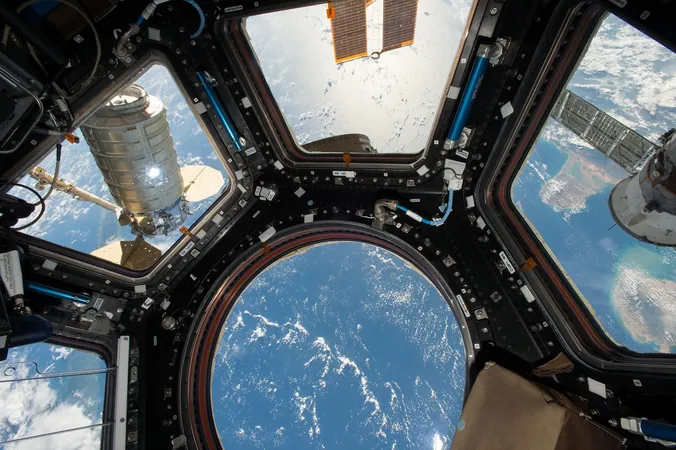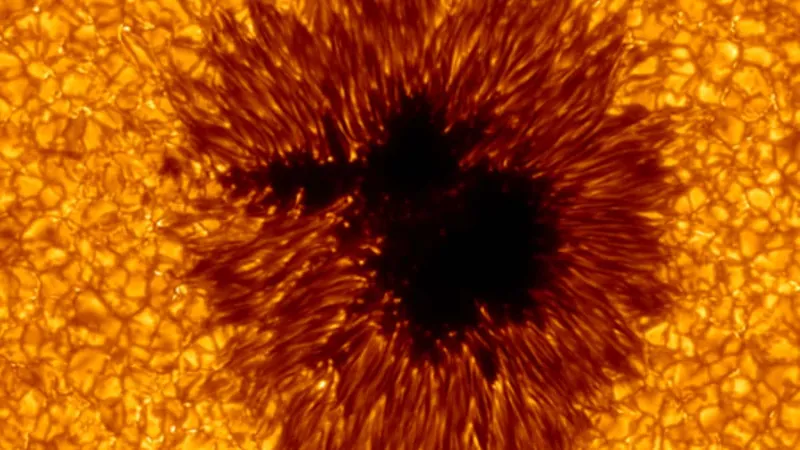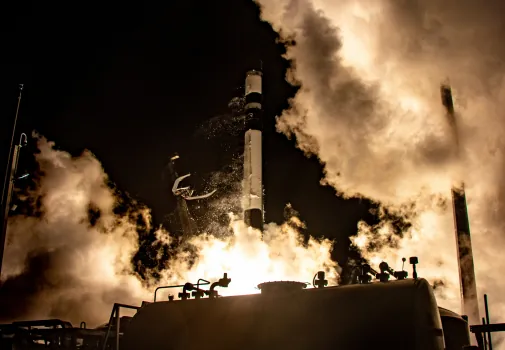
Astronauts Show Temporary Cognitive Slowdowns in Space, But No Long-Term Impairment
2024-11-20
Author: Amelia
Introduction
A recent study has shed light on the effects of long-term space travel on astronauts' cognitive abilities, revealing that while they may perform certain tasks more slowly in space, there are no indications of permanent cognitive decline. The research comes amid ongoing discussions about the challenges faced by astronauts aboard the International Space Station (ISS).
Challenges of Living in Space
Living in space introduces intense physical and psychological pressures on the human body. Astronauts face a barrage of challenges—radiation exposure, microgravity, disrupted sleep, and demanding work environments—which could potentially strain cognitive functions. Given the high stakes of their missions, where even minor errors could have catastrophic consequences, understanding these effects has become crucial.
Study Overview
In this landmark study, researchers analyzed the cognitive performance of 25 astronauts who spent an average of six months on the ISS. According to Dr. Sheena Dev from NASA’s Behavioral Health and Performance Laboratory, the study represents the largest dataset of cognitive performance among professional astronauts to date. It concluded that there were no signs of significant cognitive impairment or neurodegenerative decline after these extensive missions.
Speed vs. Accuracy: What the Study Reveals
The astronauts underwent a comprehensive assessment measuring speed and accuracy across ten cognitive domains at various intervals: before launching, during their stay, and after returning to Earth. Remarkably, although responses were slower for tasks related to processing speed, working memory, and attention, accuracy remained consistent. Notably, initial slowdowns were only temporary, with attention-related tasks improving early in their missions, while processing speed did not revert to normal until after returning home.
Dr. Dev emphasized that the cognitive performance remained stable overall, and no evidence suggested central nervous system damage from the six-month stay in space. "The cognitive effects we observed are comparable to those experienced on Earth under stress," she explained, highlighting that both settings produce similar vulnerabilities.
Implications for Future Space Endeavors
The examination of cognitive performance is particularly relevant as humanity prepares for future space exploration, including potential missions to Mars. Understanding the subtle ways in which space travel impacts cognitive functions can aid in planning for the unique challenges astronauts will face.
Furthermore, the findings hint that certain domains of cognition, specifically processing speed and attention, may be more prone to fluctuations under stress, mirroring experiences on Earth. This indicates that astronauts might need to employ compensatory strategies to adapt and successfully complete their missions, even when cognitive challenges arise.
While this study provides valuable insights, the researchers acknowledge that the underlying reasons for these cognitive changes remain unclear. It's essential to continue investigating how astronauts can maintain optimal performance in such demanding environments.
Conclusion
As humanity looks toward the stars with ambitious plans for future exploration, understanding the cognitive impacts of space travel will be essential in ensuring the well-being and effectiveness of astronauts far from home.









 Brasil (PT)
Brasil (PT)
 Canada (EN)
Canada (EN)
 Chile (ES)
Chile (ES)
 España (ES)
España (ES)
 France (FR)
France (FR)
 Hong Kong (EN)
Hong Kong (EN)
 Italia (IT)
Italia (IT)
 日本 (JA)
日本 (JA)
 Magyarország (HU)
Magyarország (HU)
 Norge (NO)
Norge (NO)
 Polska (PL)
Polska (PL)
 Schweiz (DE)
Schweiz (DE)
 Singapore (EN)
Singapore (EN)
 Sverige (SV)
Sverige (SV)
 Suomi (FI)
Suomi (FI)
 Türkiye (TR)
Türkiye (TR)